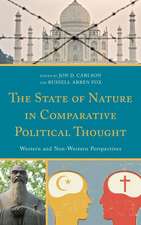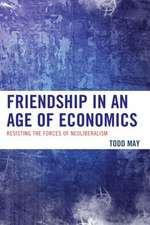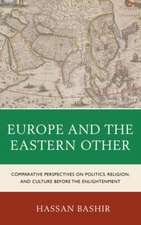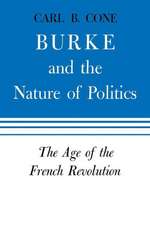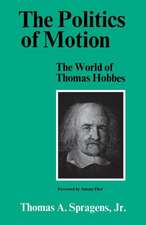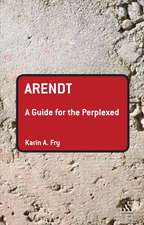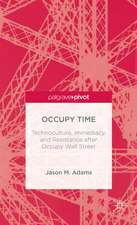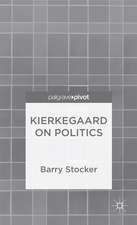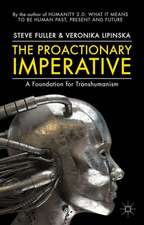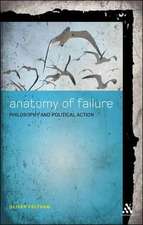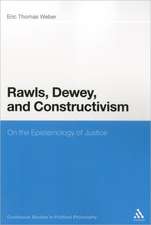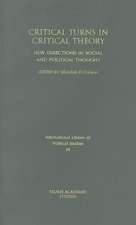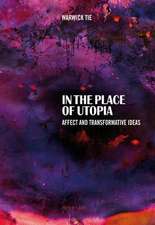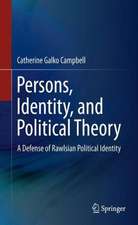Castoriadis and Autonomy in the Twenty-first Century
Autor Alexandros Schismenos, Nikos Ioannou, Chris Spannosen Limba Engleză Paperback – 27 iul 2022
| Toate formatele și edițiile | Preț | Express |
|---|---|---|
| Paperback (1) | 197.77 lei 6-8 săpt. | |
| Bloomsbury Publishing – 27 iul 2022 | 197.77 lei 6-8 săpt. | |
| Hardback (1) | 569.06 lei 6-8 săpt. | |
| Bloomsbury Publishing – 13 ian 2021 | 569.06 lei 6-8 săpt. |
Preț: 197.77 lei
Preț vechi: 257.87 lei
-23% Nou
Puncte Express: 297
Preț estimativ în valută:
37.84€ • 39.59$ • 31.44£
37.84€ • 39.59$ • 31.44£
Carte tipărită la comandă
Livrare economică 03-17 aprilie
Preluare comenzi: 021 569.72.76
Specificații
ISBN-13: 9781350199286
ISBN-10: 1350199281
Pagini: 240
Dimensiuni: 156 x 234 x 19 mm
Greutate: 0.34 kg
Editura: Bloomsbury Publishing
Colecția Bloomsbury Academic
Locul publicării:London, United Kingdom
ISBN-10: 1350199281
Pagini: 240
Dimensiuni: 156 x 234 x 19 mm
Greutate: 0.34 kg
Editura: Bloomsbury Publishing
Colecția Bloomsbury Academic
Locul publicării:London, United Kingdom
Caracteristici
Castoriadis - a 20th-century Greco-French philosopher, known for his writings on autonomy and social institutions - is a thinker growing in popularity who is becoming increasingly important to how we conceive of the political shifts in the current age
Notă biografică
Nikos Ioannou is an author whose research centers around the social-historical movements of the 21st century. He is co-author of The end of National Politics (2016) with Alexandros Schismenos.Alexandros Schismenos is a researcher working on social-historical phenomena of the 21st century. He is co-author of The end of National Politics (2016) with Nikos Ioannou.Chris Spannos is a journalist and Digital Editor and Co-Director of New Internationalist magazine.
Cuprins
Editor's note - Autonomy in the Anglosphere (By Chris Spannos)Preface - Cornelius Castoriadis: A Brief BiographyIntroduction - After CastoriadisChapter 1. Past - Time and Freedom (By Alexandros Schismenos)1.1. The Social-Historical Aspects of Time1.2. Birth and Death, Limits of Temporal Existence1.3. The De-Mystification of Sisyphus: Freedom and TimeChapter 2. Present - Politics and Crisis (By Alexandros Schismenos)2.1. The Invasion of History in Social Time2.2. The Invisible Subject2.3. Power, Authority and Freedom2.4. The Ontological Revolution: On the Phenomenology of the InternetChapter 3. Future - Autonomy, Direct Democracy and Limited Economy (By Nikos Ioannou)3.1. The Collapse of the Old and the Emergence of New Significations 3.2. New Forms of Social Networking and Local AutonomyConclusionBibliographyIndex
Recenzii
Cornelius Castoriadis was one of the most original critical thinkers of the second half of the twentieth century. This book is an ambitious and intriguing attempt to understand the current global constellation through Castoriadis's political philosophy of autonomy - a rich and thought-provoking reading.
This is a vigorous and thought-provoking book, exploring original ways of linking Castoriadis´s work to the politics of the early twenty-first century.
A brilliant and lively engagement with one of the great social theorists of the twentieth century. Even today, Castoriadis' groundbreaking reflections on autonomy still point towards unexpected pathways out of a global crisis. In this decisive moment, Schismenos, Spannos and Ioannou cogently demonstrate why his work remains more relevant than ever.
This is a vigorous and thought-provoking book, exploring original ways of linking Castoriadis´s work to the politics of the early twenty-first century.
A brilliant and lively engagement with one of the great social theorists of the twentieth century. Even today, Castoriadis' groundbreaking reflections on autonomy still point towards unexpected pathways out of a global crisis. In this decisive moment, Schismenos, Spannos and Ioannou cogently demonstrate why his work remains more relevant than ever.


